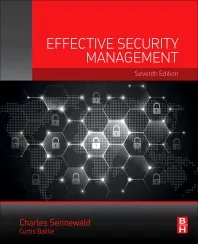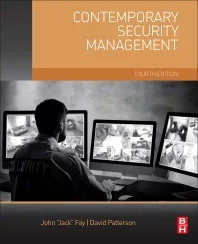Staff: Light Their Fires

Knowing how to motivate employees is an integral skill for any security manager. Lack of inspiration in employees can quickly become evident through a drop in performance; it's something a high pressure industry like security cannot afford. But fortunately a degree in psychology is not a prerequisite for becoming an effective motivator. The application of practical people principles and common sense approaches can often be effective in lighting fires under employees and guaranteeing better performance.
Hiring practices
As in sports, the key to building a successful security team is the ability to fill a roster with the right people. All security facilities and jobs have their own unique characteristics, needs and requirements and employees are all different in regard to their own characteristics, abilities and preferences. Positions at hospitals, nuclear power plants, warehouses, schools and neighborhoods can require drastically different skills from those for a fixed post, working supervisor, filed inspector and rover.Judging character during the interviewing process is key to finding an employee apt to enjoy and be consistently challenged by a given job. An introverted applicant who prefers the outdoors, dislikes paperwork and is highly intelligent will not be motivated to work a boring, indoor, public job that involves mountains of paperwork. However, a person who enjoys the outdoors, a varied routine and being around other people will probably work out quite well assigned to a busy front gate post.
A simple technique for avoiding the hire of a proverbial square peg for a round hole position is to categorize attributes. List several pairs of opposing characteristics, such as indoors versus outdoors, stationary versus walking/riding and complex duties versus simple duties. Then, decide which work site accords with each of these attributes and profile officers according to their personal preferences and abilities.
Most every employee has an inert drive to perform well. Poor performance may actually be harder to maintain for employees because it requires making up excuses and covering tracks. For example, a supervisor behind in a follow-up accident investigation summary may take more time inventing a believable reason for the report’s tardiness than it would take to complete the assignment. However, there may well have been some good reason why the supervisor had fallen behind.

Remember employees want to succeed
It’s important for a security manager to understand that most of the time, poor performance does have good reasons, even if the employee is hesitant to share them. The starting point in being a good motivator is to see and remove the barriers keeping employees from doing their best. Going back to the example above, the security manager took a few moments to discuss the situation with the supervisor, discovering that the company had changed accident investigation forms so frequently in the last year, that the supervisor didn’t know which one to use. That problem was sorted out quickly by some direction from the manager.In another example, a security officer was criticized for not being able to give the public better directions around the art museum where the officer was assigned. The museum’s security manager, willing to discuss the matter, discovered that the officer had originally been trained by verbal instructions alone, but learned visually. Armed with a map of various floors of the buildings, the officer could look at and direct people who were lost; soon receiving compliments rather than complaints.
A good security manager knows when to take a little time to make ensure that employees understand what is expected of them – that they know how to do all of the aspects of each job and have the right tools to do the it well. Low performance might have more to do with unclear expectations than low motivation.
Know the employees
Each employee can be motivated to perform well for different reasons and even the same employee may need to be motivated by different means at different times. Human motivation is complex and runs in cycles. There is no shortcut here; the security manager simply has to take the time and effort to get to know their employees well enough to know what best motivates each individual. For some it may be public recognition, while for others it may be the promise of a promotion.The manger must make sure a given reward is, in fact, rewarding to the particular employee receiving it – don’t make assumptions here; check it out. For example, a manager can choose to reward an outstanding emergency response with a public acknowledgement, only to learn that the officer gets embarrassed by such praise.
When bad habits tend to be repeated, look for the hidden rewards that are being given to that performance and remove them. For example, one supervisor in an organization might be continuing to undermine management’s position regarding stern employee discipline simply because the act was currying favor with his subordinates. The security manager who picked up on this could teach the supervisor some more legitimate ways to gain the respect of the subordinates, such as starting a performance incentive program to reward better safety practice suggestions.

Promote your enthusiasm
A security manager’s most effective motivational tool is his or her own positive energy and enthusiasm. Security employees always learn much more from what they see than what they are told. When demonstrating a positive attitude and enthusiasm for doing a job well, the manager provides an example for employees to emulate. Becoming a good role model has many valuable payoffs in motivating employees and bettering interpersonal relationships within the operation.
This has a lot to do with attitude. A security manager with a dreadful ego problem or one who constantly delegates most unsavory tasks can severely damage morale and, subsequently, performance of that manager’s company. On the other had, a manger who understands the valuable principle of leading by example knows that doing clerical and other administrative tasks often encourage employees to voluntarily assume more responsibilities.
Communicate well
The second most important motivational tool of an effective security manager is good communication. This concept includes careful listening and thoughtful use of words that are clearly understood, that don’t waste anyone’s time and have high impact. It’s cliché, but the old rule of thumb, “ask twice and talk once,” can actually prove to be good advice. The worst thing that a security manager can assume when communicating with employees is that one can say something so simply that it can’t possibly be misunderstood. It sure can.One seasoned security manager familiar with the value of good communication now writes short, upbeat and simple instructional memos to his staff, following them up with a quick, personal meeting with each employee to make sure that their interpretation were correct. But in his earlier days, he used to write long-winded, critical memos without any chance for clarification and then wondered why there weren’t any performance changes for the better. Sometimes things even got worse.
A smart security manager also understands that defensive communication inhibits good motivation. Defensive communication is any form of communication that appears to be controlling, judgmental, insensitive, over-certain, dishonest or superior. Using a more supportive tone – conveying equality, freedom, tentativeness, empathy, honesty and acceptance – will almost always have a better impact on improving motivation of employees.

Give an explanation
Whenever the security manager has to carry out an unpopular action that can hurt morale and motivation with employees at a sight, the effects can be somewhat alleviated simply by taking time to explain the reasons behind it. It can be surprising how effectively a reasonable explanation can take away the bad taste in somebody’s mouth concerning new policy and get that employee to move on without much resistance.In one security company, the president was taken back by the loss of a $2 million contract with a government facility due to spending cutbacks. He called the staff together, told them the bad news and asked for their suggestions. Each employee offered several areas in which to cut expenses, a few even offered to go part-time and some others offered to look for some new business during their off time. In less than a month’s time, the company was back on track, despite this major hiccup.
It should come as no surprise that most employees, who in this particular profession tend to be well educated, experienced and capable thinkers, possess a strong need to know what is going on and can handle bad news better than a manager might assume. Even the most basic expectations for employees sometimes go unspoken, leading to confusion or worse later on. Explaining the reasoning behind any initiative, large or small, complex or obvious, can go a long way in earning employees’ trust and motivation. Employees made aware of their manager’s goals and reasoning can also help develop workable solutions that perhaps the manager never envisioned.
Be consistent
Good motivational intentions can be easily undermined by inconsistency in demonstrating a good standard of work for employees to follow. When continued good performance goes unrewarded and poor performance is not corrected consistently and quickly, employees will spot these inconsistencies immediately.
Supervisors also have to pay close attention to the perceptions employees can develop concerning favoritism and fundamental fairness. The supervisor’s role is always challenged by the need to balance the concerns and issues of each individual employee against the overall welfare of the work team and company.
Help others meet common needs
All employees have certain needs in common. These goals include, but are note limited to, achievement, recognition, reasonable autonomy and responsibility. Employees also need meaningful work – jobs that require skills, a finished product to see and feedback about their performance. The manager is thus in an excellent position to design jobs to accommodate such needs, gaining loyalty and improving productivity at the same time. Needs can also vary; employees might require a high level of job security to fully commit their talents, or perhaps simply need a sense of control.
It is generally not good practice to try and talk philosophy with someone who is hungry and cold, so to speak. Individuals and companies want safety, security and peace of mind; that is why they have security programs or hire security services. Security employees want the same things and the most effective security manager makes that employees get their own personal needs met first, before they can help others do that too.
The team concept
Sometimes what motivation that can’t be accomplished by the manager can be achieved by the team. The positive energy from a good team working together toward a common goal can accomplish much more than any individual employee can independently.
This is the important Gestalt Principle, which states that the whole is much more than just the sum of its parts. Layering of a security program often accomplishes this goal, as what details the roving security officer may inadvertently miss can be picked up by the motion activated CCTV, or one security officer may be able to help others with computer skills in return for some remedial work with an expert report-writer and PR specialist. The positive motivational energy arising from good teamwork is called synergy and it is a valuable commodity to tap into.
Use a telescope and a microscope
Good motivation has to be a difficult balancing act between emphasizing consistency for the good of the facility and listening to and acting on the unique concerns of individual employees. Basic human nature involves the opposing needs of wanting to be respected for individuality and at the same time being treated fairly and equally. This divergent conflict between freedom and equality requires a manager to maintain a perpetual balance between the opposing forces in the workplace.Employees need to have their individual concerns and issues heard given fair consideration, even if the manager can’t always act on them in their favor. The classic example for this is workers complaining about low wages or insufficient funding for their programs. Rather than dismissing such issues off-hand, a time-proven answer is to suggest means of making more money for the company.
Arranging enough listening time for individual employees can have major motivational payoffs. So can explaining why the bigger picture is more important when that is in fact the case. When a security manager takes the time to share the rising costs of vehicle accidents and equipment misuse and the monetary potential for using those misspent funds on better vehicles, equipment and even pay raises, motivation and performance can improve.
A thank you works
The most powerful comment that a security manager can say to an employee who has done a good job is to thank them. Leadership guru Max DePree says a leader’s first responsibility is to tell people where they are going and the last is to say, “thank you.” Writing personal thank you notes and sending them to employees at home can be effective means of getting this message across. When these words are timely and genuine, they can go a long way towards making employees feel better about their contributions to the company.Motivation doesn’t have to be a great mystery and an employer doesn’t need a Ph.D. in Psychology to become a good motivator. Practicing these simple techniques with all employees of a company can help engender an excellent level of performance.
Looking for a reprint of this article?
From high-res PDFs to custom plaques, order your copy today!








